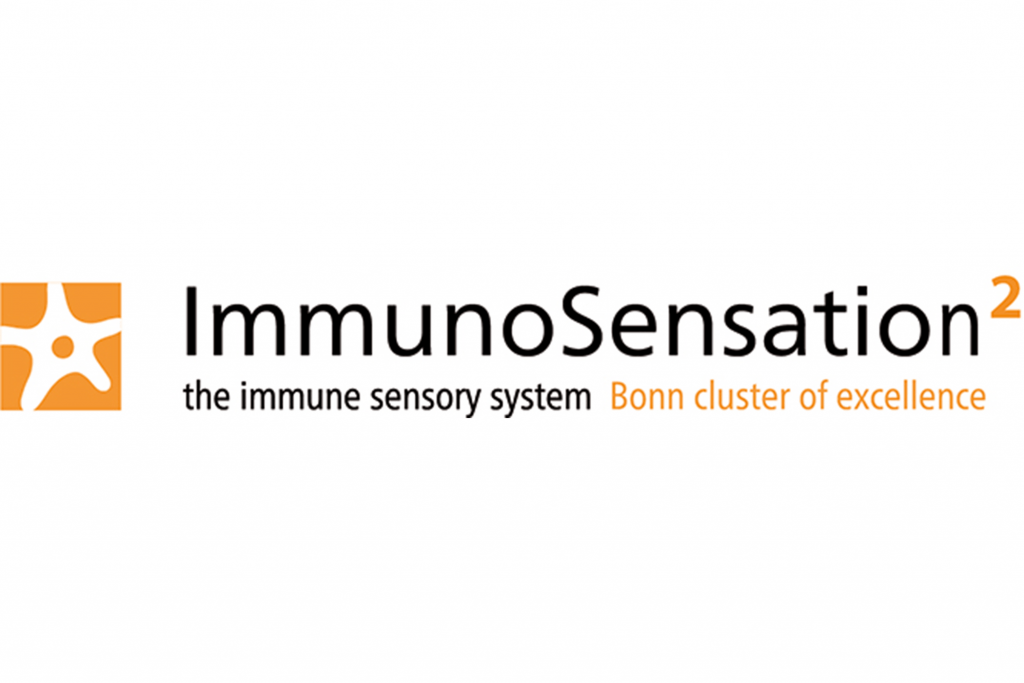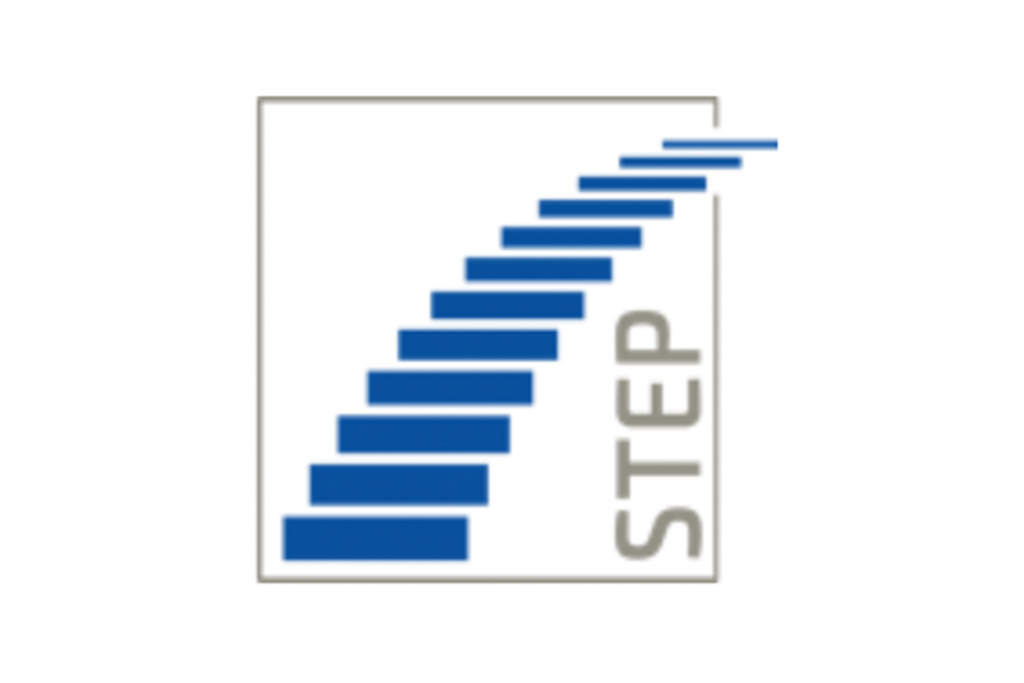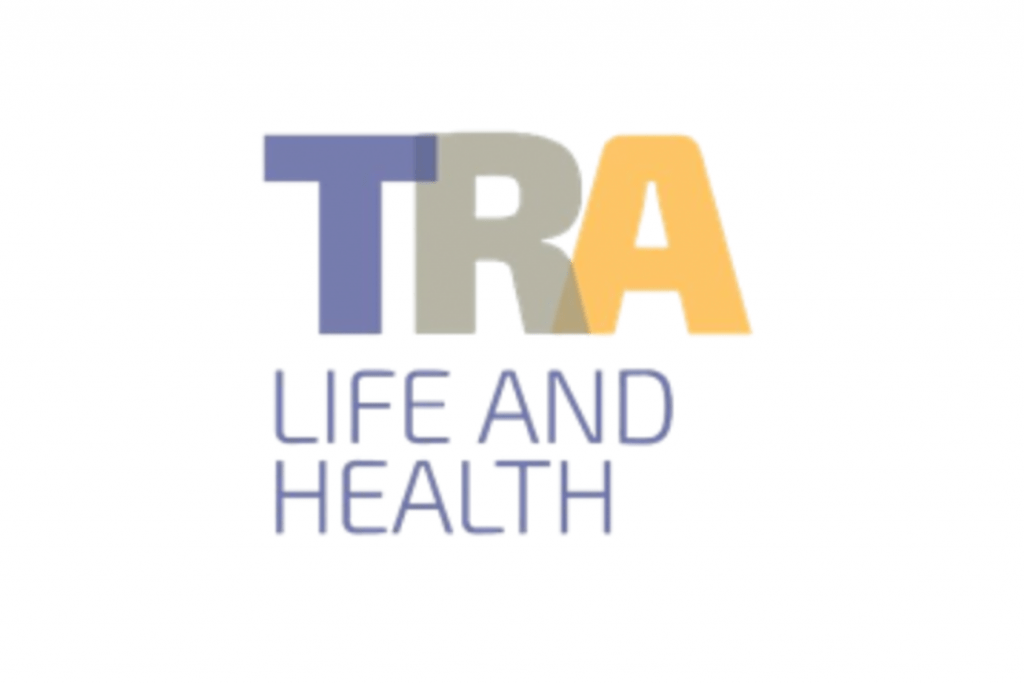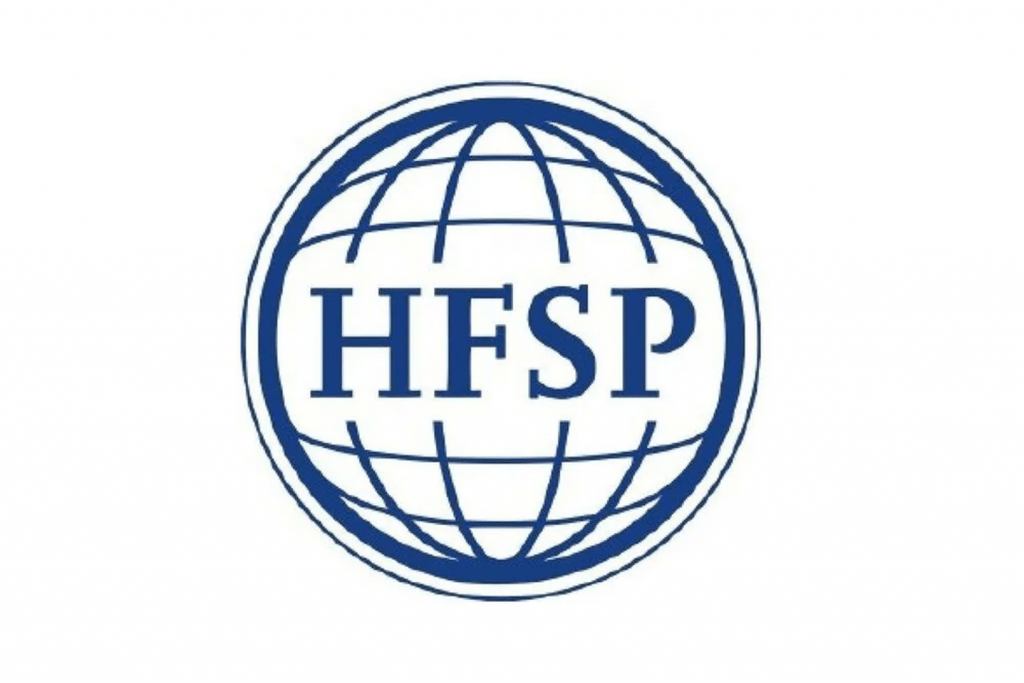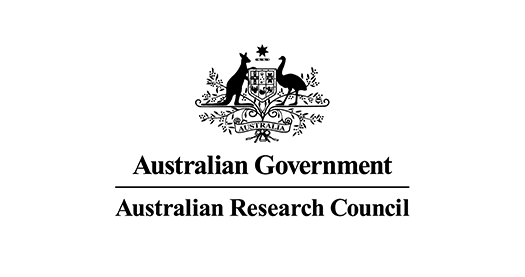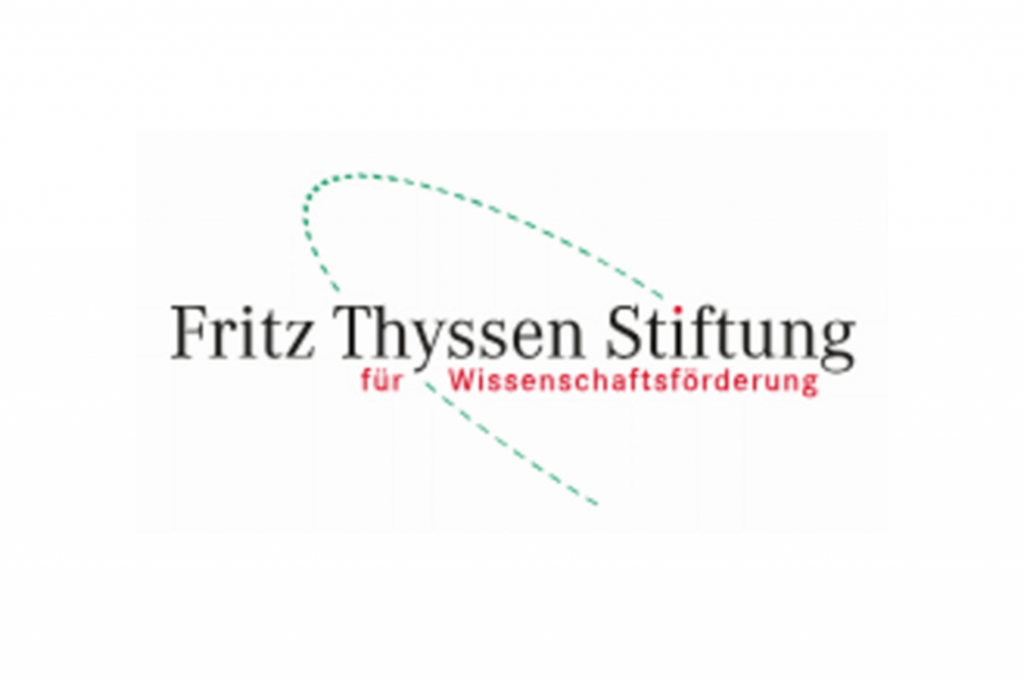Led by Prof. Dr. Kathrin Leppek, the Leppek Lab is located at Biomedical Center II (BMZ II) at the University Hospital Bonn. We are part of the Institute of Clinical Chemistry and Clinical Pharmacology within the Faculty of Medicine of the Rheinische Friedrich-Wilhelms-University Bonn.
About
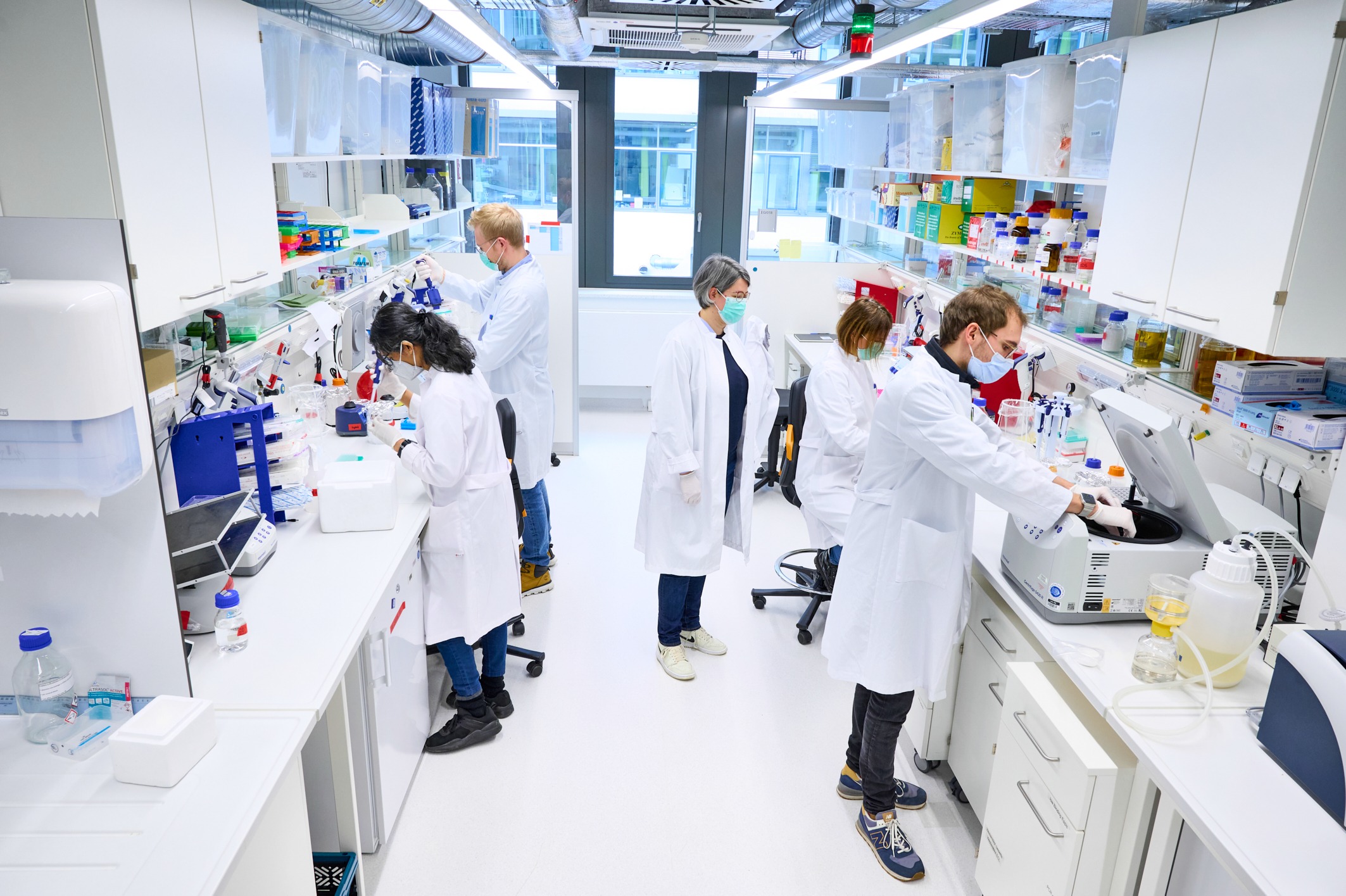
Lab Culture
I am committed to scientific training of the next generation of scientists. I am determined to pursuing rigorous, innovative research, and to making fundamental discoveries. Our team is collaborative and inclusive. Everyone is welcome and offered the opportunity to learn and grow to their full potential. I want to build a supportive lab environment and community that will foster scientific development and collaboration. I am convinced that rigorous and reproducible discoveries are at the core of the scientific endeavor. Our lab is creating a welcoming, respectful, inclusive and collaborative lab environment with a clear mission: innovative science, training, and mentorship. We try to foster creativity and learning while promoting the personal and professional growth of scientists at all experience levels. We value:
Innovation through diversity
Diversity of perspectives fosters creativity and innovation. Our lab welcomes trainees from various educational levels and scientific backgrounds.
Collaboration
We discover new RNA biology and develop new RNA tools using unbiased interdisciplinary strategies. We are happy to share our tools and explore new scientific areas with local and international collaborations.
Commitment to training & mentorship
We train our mentees to be creative scientists, effective communicators, and respectful mentors. We offer individualized and supportive mentorship.
Community & outreach
Science needs to become more accessible to the general public. We aim to spark curiosity and inspire the next generation of scientists through outreach projects.
Join us
Are you a self-motivated and aspiring RNA enthusiast? Do you have an interest in ribosome biology, translation control, regulatory RNA elements and structures, innate immune biology, or RNA tool development? Would you like to tackle these big questions together, in a collaborative environment with integrative science? We would love to hear from you!
Collaborators
We enjoy synergistic collaborations that address difficult biological questions and help develop novel RNA tools to study translation and RNA biology. Do not hesitate to reach out (Contact Kathrin). We value our ongoing collaborations with the following labs:
Maria Barna
Stanford University
CA, USA
Daniel F. Jarosz
Stanford University
CA, USA
Felix Meissner
Institute of Innate Immunity, University of Bonn
GER
Laura Surace
IKCKP, University of Bonn
GER
Ranen Aviner
Chan-Zukerberg Biohub SF
CA, USA
Alena Khmelinskaia
LMU Munich
GER
Dragomir Milovanovic
DZNE Bonn, Charite Berlin
GER
Daniel Broere
Utrecht University
NL
Meng-meng Fu
UC Berkeley
CA, USA
Melania Capasso
DZNE Bonn
GER
Maximillian Billmann
Institute of Human Genetics, University of Bonn
GER
Jonathan Schmid-Burgk
IKCKP, University of Bonn
GER
Anders Lund
University of Copenhagen
DK
Kerstin Wilhelm-Jüngling
Institute for Neurovascular Cell Biology, University of Bonn
GER
Yongguo Li
Institute of Pharmacology and Toxicology, University of Bonn
GER
Jay Brito Querido
University of Michigan
MI, USA
Duygu Kuzuoğlu-Öztürk
UC San Francisco / Sabanci University
CA, USA / TUR
Chun-Kan Chen
University of St. Louis
MO, USA
Teaching
Elective Module MSc: Brown Fat RNA Dynamics
Course Contents
Adipose tissue, commonly known as fat tissue, is a specialized type of connective tissue primarily composed of adipocytes, which are cells specialized for storing energy in the form of fat. In this module, the students will be able to name the morphological differences of brown and white adipose tissue and to recognize them in Hematoxylin and eosin (H&E) staining, as well as fluorescently labelled tissue. The students will learn the ViewRNA technology, use ViewRNA, understand the translational regulation of brown fat regulators and learn how to study translation regulation using various reporter assays.
The following content will be covered by the practical course:
- Localization-specific detection of mRNAs with fluorescent probes within mouse tissue sections (ViewRNA)
- ViewRNA of mRNA targets in cold-exposed vs. control murine brown adipose tissue
- Comparison of mRNA to protein levels with immunofluorescence microscopy
- High-resolution microscopy of brown adipose tissue
- Luciferase mRNA reporter assays and RT-qPCR analysis for translation dynamics of adipose-relevant target genes in murine endothelial cell lines
- Fluorescent circular RNA reporter assays to study IRES-mediated translation regulation
- Integrative quantification and analysis of primary data and figure design
This is the research field we will explore in this course together with the Wilhelm-Jüngling Lab at the UKB.
Teaching Goals
In this course, the students will get an overview about state-of-the-art techniques to study adipose tissue and RNA translation dynamics in well-defined models (mammalian tissues and cell lines). Key competences include performing experiments, data analysis, presentation of results, and critically discussing experimental outcomes in English.
Course Structure
Programs
MSc Immunobiology, MSc Medical Immunosciences and Infection, MSc Molecular and Cellular Biology, MSc Biochemistry
Type of instruction
Lectures, hands-on practical course, report and questions
Language
English
Course size
4-6 students
Location
Life&Brain and BMZ2 labs, Venusberg Campus, UKB, Bonn
Time
Second semester, summer semester, July
Workload
2 weeks, Mo-Fr, 9 am – 4 pm, 150 h, 3 SWS
Preparation
Practical script will be provided before the course
Contact
Prof. Kathrin Leppek: kleppek[at]uni-bonn.de
Prof. Kerstin Wilhelm-Jüngling: Kerstin.Wilhelm-Juengling[at]ukbonn.de
https://www.ukbonn.de/en/icccp/research/leppek-group/
https://www.ukbonn.de/invz/
Lab Rotations
MSc students who are interested in our research can apply for a lab rotation. Rotation students shadow one of our PhD students investigating transcript-specific translation regulation in the immune response. During the rotation, the student will learn how mRNA translation is regulated in a gene-specific manner in immune cells, develop an understanding of the principles of reporter assays and experimental design, analysis and interpretation. The student will also get hands-on training in advanced RNA technologies. Key competences include planning and conducting experiments, data analysis, presentation of results, and critically discussing experimental outcomes in English.
Rotation Structure
Programs
MSc Immunobiology, MSc Medical Immunosciences and Infection, MSc Molecular and Cellular Biology, MSc Biochemistry, (also BSc theses)
Type of instruction
Hands-on lab rotation project under supervision, report and presentation
Language
English
Location
BMZ2 lab, Venusberg Campus, UKB, Bonn
Time
From first semester on
Workload
6-8 weeks, 450 h, 15 ECTS
Funding
Support the Leppek Lab
If you are excited about our research and would like to support our work through a philanthropic gift, please contact us. Contact Kathrin: kleppek[at]uni-bonn.de
